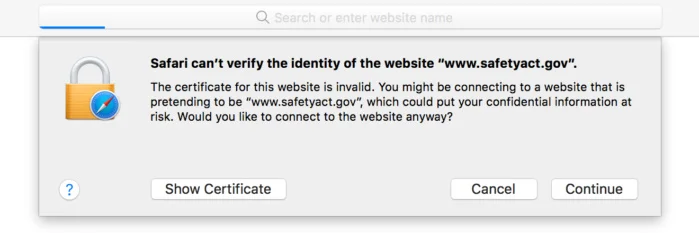2017 is nearly halfway over and it’s already been quite the year for web browser security. We’ve grown accustomed to seeing pages that block us from accessing websites with ineffective security methods, especially as organizations move away from vulnerable SHA-1 certificates.
In fact, just last week Microsoft released a security advisory stating websites protected with SHA-1 certificates will no longer load in Microsoft Edge and Internet Explorer 11 web browsers.
Despite the prospect of their users witnessing unsubtle warnings about their vulnerable certificates, a surprisingly large number of websites do not follow best security practices. In fact, we’ve seen warnings on some pretty surprising, and noteworthy, sites.
For example, Tom Henderson of Network World published an article regarding browser certificate failures on April 25th. According to Tom, when he attempted to access a website affiliated with the US government, a familiar notification popped up.
“My case in point is a website that explains the U.S. Safety Act,” writes Tom. “The Act speaks to the practice of offering legal liability protection for products or services that have been certified for anti-terrorism protection. Any legitimate browser at the moment of this writing will block you from that site and warn you that the chain of authorities needed to vet the site as protected by SSL/TLS does not exist. The site is untrusted.”

Image via Tom Henderson
At this point, the U.S. Safety Act’s website appears to load without issue. However, Safari still brings up the warning Tom encountered. Chrome treats the certificate, which was issued in 2015, as trusted.
Unfortunately, this is not the only example of on certificate misuse online. Users should still display caution when visiting questionable websites.
Are you sure we can trust the certificates on your website?
